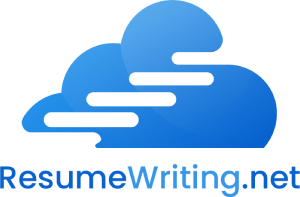Securing a job interview is a significant milestone when pursuing your new career. You may feel mixed emotions as you prepare for your upcoming interview. Still, the biggest challenge now lies in convincing prospective employers that you are the perfect candidate for the position. Your ability to navigate and excel during an interview can make all the difference.
Table of Contents
The tricky part is that you can never know what the hiring manager will ask you during an interview. So, the only remaining thing is to focus on your skills and experiences and compare them to the job position. Instead of brainstorming and memorizing hundreds of possibilities, reframe your stories as significant experiences that portray you as the ideal candidate for the position.
To prepare you for this critical phase of the job search process, we present a comprehensive guide on common interview questions and how to answer them.

Tell Me About Yourself
This is a question that almost always comes up first during an interview. It’s important to understand why the hiring manager is asking you this in the first place. The question is usually an introduction and is not simple small talk. They are looking to get a general idea of what you’re all about. Depending on your answer, the interviewer will decide about the questions that will follow. This is actually your opportunity to leave a lasting impression.
So what is a good answer? Here are some tips on answering the most common job interview questions:
- Give a concise and compelling introduction – Tailor your answer to the job you’re applying for because interviewers are not interested in your work experience in real estate if you are applying for an accounting position.
- Highlight relevant experiences and achievements – Talk about your educational background, the achievements that help you stand out from other applicants, and your interest in the job.
- Connect your background to the specific job and company – Stick to the tested formula of structuring your answer based on the past-present-future format. This means presenting your background and relevant work experience that got you where you are today. Offer information about your current role and your top accomplishments, followed by your future plans and why you’re interested in the position.

What Are Your Strengths and Weaknesses?
What may seem like a trap at first is actually an opportunity to show your skills and personality. Candidates who understand their strengths and weaknesses demonstrate self-awareness and ability to improve. This signals that you are a great fit for the position. It basically comes down to knowing how to answer this question.
Start by identifying and prioritizing your greatest strengths, but don’t just list them. Always provide examples to support each of your strengths and relate them to the role you are interviewing for. For example, don’t just state that you are an excellent problem solver but demonstrate this and pull up an anecdote from your previous professional experience.
Avoiding talking about your weaknesses may be understood as a lack of self-awareness and honesty, which is what hiring managers are looking to gauge. “Nothing, I’m perfect” is certainly not an option, nor is “I can’t meet deadlines.”
Try selecting a genuine but non-disqualifying weakness and talk about the steps you’ve taken to overcome or improve that particular weakness. This will surely demonstrate self-awareness and your commitment to personal growth.

Why Should We Hire You?
Let’s see how to answer common interview questions like this one. It’s an open-minded question that can be answered in different ways. You can:
- Go over your resume and summarize your key qualifications and work experience
- Talk about your unique skill sets and contributions that make you stand out from other candidates
- Show that you are a great fit and highlight how you align with the company’s needs and goals
Where Do You See Yourself in Five Years?
This has to be the most dreaded interview question when thinking about commonly asked interview questions and how to answer them. No one knows where they will be in five years, so the question is more directed towards how candidates see their career paths developing. Always be simple and down to earth, avoiding overly specific or unrealistic projections.
Try to align your career goals with the company’s trajectory, and be sure to express your commitment to continuous learning and growth.

Why Are You Interested in This Position?
Hiring managers are for extensive knowledge of the company and its values, so they should express genuine enthusiasm for the role and company. It shows them your passion for the field, so talk about the specific aspects of the job that align with your skills and goals. This will also help answer the dilemma of whether you will stick around for a longer period.
Here are sample answers on how you should and shouldn’t answer this question:
| Good Answer | Bad Answer |
| I want to work here because I see myself succeeding in this role and making the most of pay-per-click advertising. To give you an example, at my previous job, I increased the return on ad spend by 18% within four months of taking over the account. | I believe I would be an excellent candidate for this position because I have previously completed similar work and been successful. |
Can You Describe a Challenge You’ve Overcome?
This question is because hiring managers want to learn more about your problem-solving skills. They want to know how well you perform under pressure. Select a relevant and significant challenge and provide details for the specific actions you’ve undertaken to overcome the biggest challenge. Be sure to highlight the positive outcomes and the lessons you’ve learned from this experience.
Describe Your Work Style or Preferred Work Environment

This helps to envision you in the role and how you’ll fit in the company environment. The answer will surely be that your preferred work environment and communication style are similar to the company’s. Explain your approach to collaboration, that you are a team player, and keep it positive.
How Do You Handle Stress or Pressure?
Stress and pressure are a part of the office environment, and employers want to know how you handle such situations. Avoid claiming that you rarely experience stress at work. The best response to this interview question is to provide an example of how you successfully handled pressure and stress in previous positions. Describe specific strategies for managing stress, emphasizing your ability to stay focused and maintain productivity.
Can You Provide an Example of a Successful Project You’ve Led?
This is another version of the “Why should we hire you” interview question, focusing on one specific project. So, it’s pretty much straightforward. Select a project relevant to the job requirements and present your role in planning, executing, and achieving success in detail. Be very specific with your answer, so use the STAR method (situation, task, action, result). End by quantifying results and emphasizing your contributions to the project.
What Are Your Salary Expectations?
This is a tricky question because you need to create a balance between lowballing yourself and avoiding the risk of being rejected for the position due to an outrageous number. Research industry standards and salary ranges to help you determine your salary expectations. Try focusing on the value you bring to the role rather than the specific number. It is also recommended to express flexibility and a willingness to negotiate in case you disagree on the number.
Do You Have Any Questions for Us?

This is one of the most common job interview questions asked at every interview. There is a wrong answer to this, and that is “No, I have no questions.” Why? Because it shows the interviewer that you are not really interested in the job.
To learn more about the company, prepare thoughtful questions demonstrating genuine interest. Don’t just ask random questions and prepare some questions to ask hiring manager like inquiring about the company culture, team dynamics, or future projects. Avoid the questions you can easily find the answer to by doing some basic research.
Final Thoughts
Researching common interview questions and how to answer them can help you better prepare for the interview and ace it. Many may not agree, but there are no right or wrong answers to most of the interview questions. Remember that your job is to convince the hiring manager that you are a great fit for the job.
And remember always to have a list of questions to ask the interviewer. You want to do everything you can to convince the interviewer that you are interested in getting the job.


